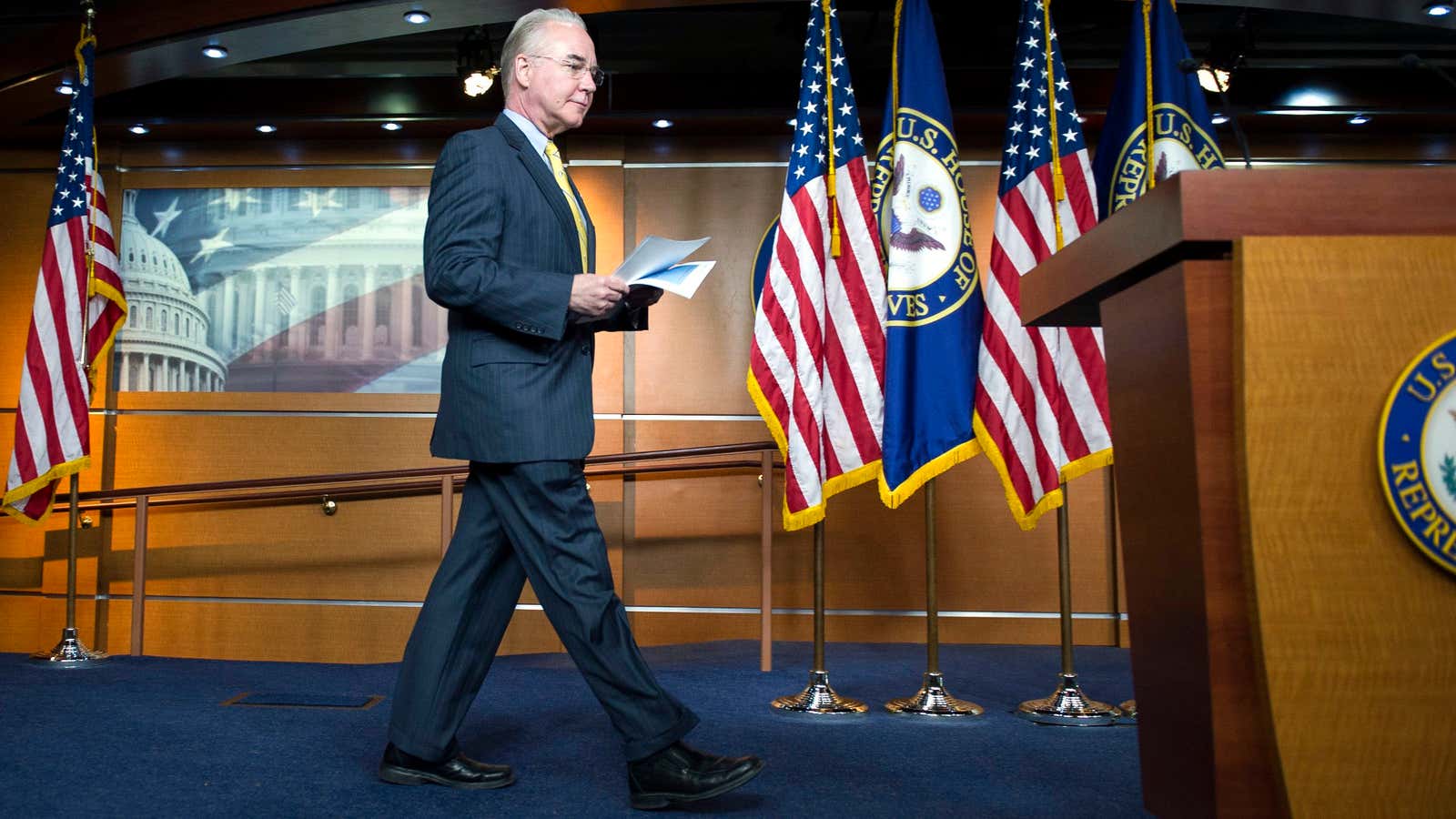This week, the US hit its official borrowing limit, setting up yet another fiscal showdown when the government runs out of ready cash sometime in the fall. Judging by the budget released by Republicans in the House of Representatives, it’s going to be an ugly fight.
Consider this: President Obama’s budget, released last month, proposed increasing government spending by $1.1 trillion over ten years, with tax increases of $862 billion to keep the country’s debt on a sustainable path. The Republican budget calls for more than $6 trillion in spending cuts over the same period, without any increase in tax revenue, to close the annual US deficit by 2024.
The New York Times somewhat unfairly called Obama’s budget “utopian” for proposing policy ideas that were unpopular with Republicans and thus politically dubious, but by those standards, this budget is downright nuts.
Take just two examples. First, the ol’ magic asterisk: This budget proposes $1.1 trillion in unspecified cuts from a set of spending programs that includes agricultural subsidies, tuition grants for low-income college students, food stamps, disability payments and the earned income tax credit. As budget expert Bob Greenstein notes, Republicans could barely pass a $40 billion cut to the food stamp program last year over the objections of Democrats and even some of their own party members. Finding $1.1 trillion more seems completely unlikely.
Second, there’s health care. The Republican budget promises to repeal all of the spending in Obamacare, while keeping the revenue and the cost-savings. It’s hard to imagine, politically or economically, the complete elimination of the rules the health insurance market follows; as James Pethokoukis points out, there are conservative health care alternatives that wouldn’t completely disrupt health care, but they cost money, too.
We could go on about defense-funding gimmicks, but it’s not worth missing the forest for the trees. With the US apparently entering a period of low but steady economic growth, this is an ideal period to relax austerity and reduce the debt. With the end of the split Congress after Republicans won control of both chambers, pundits hoped for a more straightforward negotiation between the White House and a Republican congress, and the kind of incremental deal-making that led to larger-than-expected fiscal gains during the late nineties, the last time the US faced this political split.
But instead of small deals, perhaps drawn from among the myriad compromise proposals drafted in and out of government over the last few years, House Republicans have managed to draft a bill that’s too hot for even the Republican senate, which will pass its own bill with much less damning political detail.
